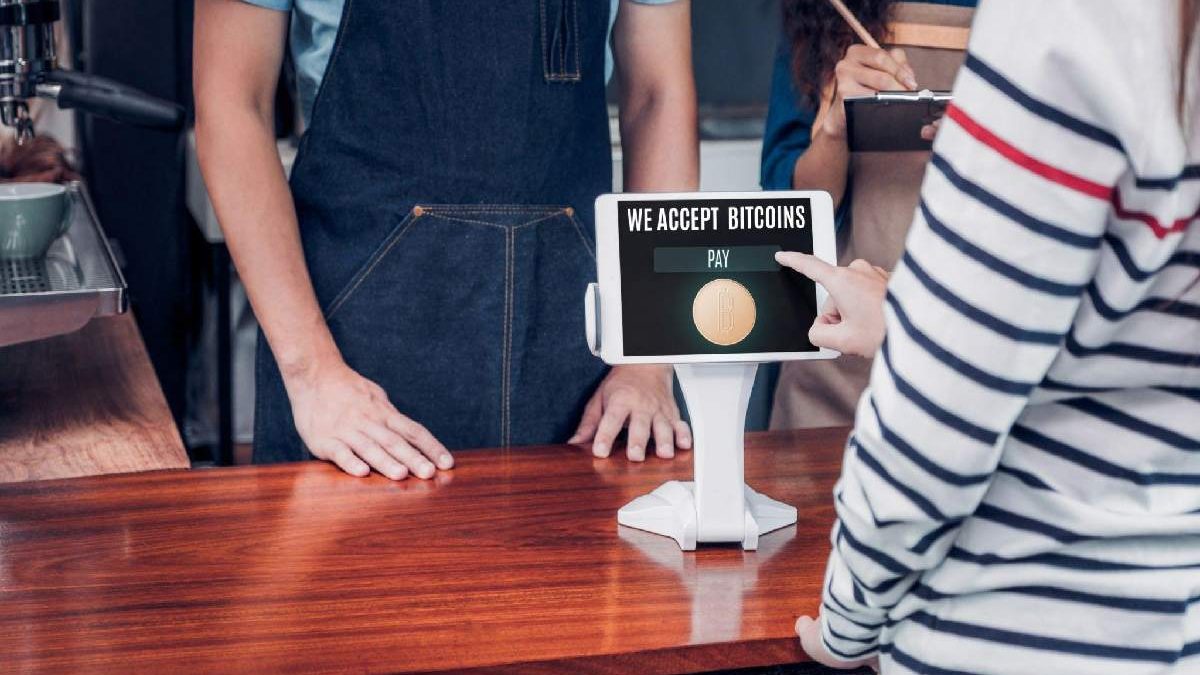Bitcoin Payments – With the increasing popularity of Bitcoin, it’s no surprise that more and more small businesses are considering accepting it as a payment method. While the process might seem daunting at first, it’s actually quite simple. In this beginner’s guide, we’ll take you through the steps you need to follow to start accepting Bitcoin payments for your small business. For more explore the Big Money Rush in trading industry
Table of Contents
Why Should Small Businesses Accept Bitcoin Payments?
Accepting Bitcoin payments can offer several benefits for small businesses, such as:
Increased security: Bitcoin transactions are secure, irreversible, and do not require sensitive customer information.
Lower transaction fees: Bitcoin transactions typically have lower fees compared to credit card transactions.
Global reach: Bitcoin is a decentralized currency, which means that businesses can accept payments from customers all over the world without any extra hassle or fees.
Access to new markets: By accepting Bitcoin payments, small businesses can attract customers who prefer to use Bitcoin as a payment method.
What Do You Need to Start Accepting Bitcoin Payments?
To start accepting Bitcoin payments, you will need a few things:
A Bitcoin wallet: A wallet is where you store your Bitcoin. You can choose from various types of wallets, including online wallets, hardware wallets, and software wallets.
A Bitcoin payment processor: A payment processor will allow you to accept Bitcoin payments from your customers and convert them into your local currency.
A way to display your Bitcoin payment address: You will need to display your Bitcoin payment address on your website or invoice so that customers can send payments to you.
Getting a Bitcoin Wallet
Before you can start accepting Bitcoin payments, you will need to get a Bitcoin wallet. This is where you will store your Bitcoin. There are many types of Bitcoin wallets, each with its own pros and cons.
Online wallets are the most convenient option for beginners. They are free and easy to use, but they are also the least secure. Hardware wallets, on the other hand, are more secure but can be expensive. Software wallets are a good compromise between convenience and security.
Once you have chosen a wallet, you will need to create an account and set up your wallet.
Choosing a Bitcoin Payment Processor
A Bitcoin payment processor is a service that allows businesses to accept Bitcoin payment from customers and convert them into their local currency. There are several payment processors available, including BitPay, Coinbase, and CoinGate.
When choosing a payment processor, you should consider factors such as transaction fees, ease of use, and security. You should also make sure that the payment processor supports your local currency.
Setting Up Your Bitcoin Payment Processor
Once you have chosen a Bitcoin payment processor, you will need to set up your account. This typically involves providing some basic information about your business, such as your name, address, and tax ID.
You will also need to link your Bitcoin wallet to your payment processor account. This will allow you to receive Bitcoin payments from your customers.
Displaying Your Bitcoin Payment Address
To start accepting Bitcoin payments, you will need to display your Bitcoin payment address on your website or invoice. This is where customers will send their payments to.
Your Bitcoin payment address is a long string of numbers and letters. To make it easier for customers to send payments, you can create a QR code that they can scan with their mobile device.
You should also provide clear instructions on how to send Bitcoin payments to your address. This can help avoid confusion and ensure that payments are sent correctly.
Conclusion
Accepting Bitcoin payments can offer several benefits for small businesses, such as increased security, lower transaction fees, and access to new markets. To start accepting Bitcoin payments, small businesses will need a Bitcoin wallet, a Bitcoin payment processor, and a way to display their Bitcoin payment address. While the process might seem daunting at first, it’s actually quite simple and can be easily set up with a little bit of research and effort. By accepting Bitcoin payment, small businesses can keep up with the latest payment trends and attract customers who prefer to use Bitcoin as a payment method.
It’s important to note that Bitcoin is still a relatively new and volatile currency, and its value can fluctuate greatly. As a small business owner, you will need to keep an eye on the market and be prepared to convert your Bitcoin into your local currency quickly to avoid any potential losses.

